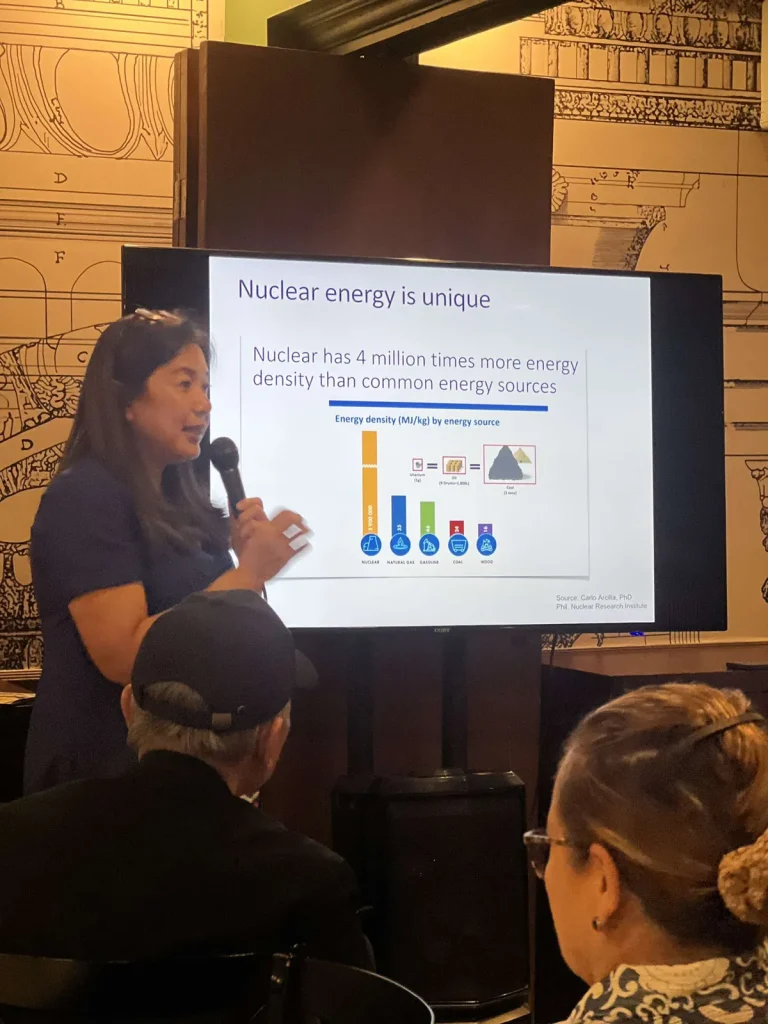
Makati City, Philippines – January 8, 2024 – Following the devastation caused by six typhoons in just over a month, Alpas Pinas, a non-stock, non-profit organization advocating for clean, cheap, yet reliable energy, has reiterated its call for nuclear energy as a vital solution to the Philippines’ growing climate challenges.
The recent storms have wreaked havoc across the nation. Severe Tropical Storm Kristine struck from October 23 to 25, 2024, leaving over 3.3 million Filipinos affected and claiming at least 150 lives. The storm’s devastation was compounded by Super Typhoon Leon, which hit from October 26 to 30. This typhoon intensified rapidly, causing widespread floods, particularly in Batanes, and resulting in further fatalities.
On November 4, Typhoon Marce led to the displacement of thousands in northern Luzon, while Typhoon Nika triggered evacuations across central and northern regions from November 9 to 11. Another storm, Typhoon Ofel, impacted the Cagayan region on November 14, flooding areas and displacing residents. The last of these recent storms, Tropical Storm Pepito, struck the Manila region on November 16, further disrupting urban life.
During a recent media briefing, the organization emphasized that nuclear power offers a cleaner and more reliable alternative to fossil fuels, which are major contributors to greenhouse gas emissions and climate change.
Around 80% of carbon emissions come from the burning of coal, most of it go to the production of electricity. Thus, if the country can create electricity without burning coal by harnessing nuclear energy, the Philippines can help stave off climate change.
“Nuclear energy is not just a clean energy source; it is the key to securing a stable and affordable energy future for the Philippines,” said Gayle Certeza, Lead Convenor of Alpas Pinas. “Shifting to nuclear power is essential to reduce the dire effects of climate change and ensure a consistent energy supply amidst the increasing severity of extreme weather events.”
Certeza added that nuclear power aligns with the country’s environmental goals, as it produces virtually no carbon dioxide or other greenhouse gas emissions. This makes it a dependable backbone for the energy grid, particularly as renewable sources like solar and wind remain intermittent.
Pangasinan 2nd District Representative Mark Cojuangco, an advocate for nuclear energy and recipient of the American Nuclear Society (ANS) Distinguished Public Service Award, echoed these sentiments. Cojuangco, who has been a long-time advocate for the integration of nuclear power into the Philippines’ energy mix, emphasized that nuclear energy could reduce the nation’s reliance on costly fossil fuels, lowering electricity prices and ensuring more stability in the energy sector because nuclear energy is clean, cheap, and reliable.
“Now is the time for the government to recognize the vast benefits of nuclear energy, not just for environmental reasons but for the economic growth it could bring. We need to ensure that our energy infrastructure is prepared to handle the growing demands of a changing climate,” said Cojuangco.
Cojuangco added: “You cannot be an environmentalist without being an advocate for nuclear energy.”
As the Philippines faces the likelihood of increased natural disasters and energy insecurity, Alpas Pinas remains firm in its call for nuclear energy as the solution to combat climate change and energy shortage. The organization calls on policymakers to consider this solution to address the country’s energy crisis while strengthening its resilience against the adverse effects of climate change.
“By advancing nuclear energy, we are paving the way for a future where businesses thrive, electricity costs are reduced, and the nation’s energy security is assured. It’s time for the Philippines to take bold steps toward a cleaner, more sustainable energy future,” concluded Certeza.
